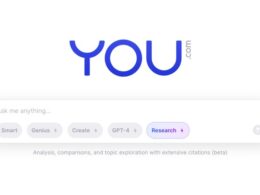According to a new report from Glean and ISG, enterprise IT teams are rapidly adopting generative artificial intelligence systems like ChatGPT. This finding indicates the recognition by IT leaders of the transformational potential of generative AI and their willingness to invest in implementing this technology across their organizations.
The report surveyed 224 IT executives at large U.S. and European companies. It revealed that budgets for generative AI projects are expected to nearly triple between 2023 and 2025. Currently, these projects account for an average of 1.5% of IT budgets, but in two years, they are projected to reach 4.3%. Larger companies, with over $5 billion in revenue, are planning to allocate even more, with 26% of these firms budgeting more than 10% towards generative AI by 2025.
Transformational Potential and Increased Investment
“Today’s IT leaders have lived through multiple hype cycles heralding new technologies as transformative, and this study demonstrates that these leaders see something different in generative AI,” stated Arvind Jain, CEO of Glean. “Companies are moving with unprecedented speed to invest in and deploy generative AI.”
The report suggests that IT leaders are betting big on generative AI with the expectation of significant payoffs. They anticipate a projected 7% increase in global GDP over 10 years and a rise of 40% in worker productivity. However, alongside this optimism, the report highlights the growing concern of shadow IT. This refers to the use of unvetted generative AI tools by employees, posing significant security risks.
“A staggering 73% of respondents view these unauthorized tools as a business threat, yet 57% acknowledge their prevalence within their organizations,” the report states. Moreover, 34% of survey respondents expressed a willingness to implement generative AI quickly, even if negative consequences could arise. Only 8% identified the technology changing too fast as their main concern.
ROI Challenges and the Need for Better Evaluation Practices
While 28% of respondents reported definitively achieving positive ROI from current generative AI projects, another 31% believe they are seeing returns but lack hard data. However, early pilots have shown promising results, with 46% witnessing better-than-expected outcomes. Although productivity gains were cited as the primary way to measure ROI, few respondents have systematic methods to quantify the benefits. As investment in generative AI increases, developing better evaluation practices may become necessary.
The findings of the report suggest that generative AI has the potential to fundamentally reshape how enterprise technology works. However, the accelerated pace of deployment is testing IT teams accustomed to a more cautious adoption approach. Striking the right balance between innovation gains and risk management will be crucial in navigating this evolving AI revolution.
To access the full report, click here. Alternatively, you can read Glean CEO Arvind Jain’s blog post here, where he analyzes the survey results in more detail.










